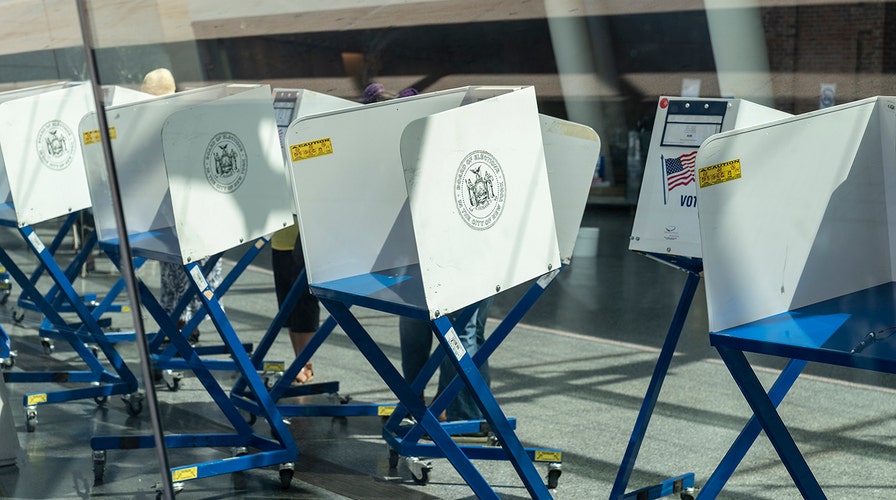Fox News Flash top headlines for September 5
Fox News Flash top headlines are here. Check out what's clicking on Foxnews.com.
In a bipartisan effort, anxious state and local authorities across the country are clambering to reimagine and reinforce polling sites ahead of the 2020 presidential election and amidst the ongoing COVID-19 pandemic.
Around 60 million ballots -- or four in 10 votes -- are expected to be cast in person this November.
According to the Elections Research Center at the University of Wisconsin-Madison, overall turnout could reach 150 million for the first time -- a count up from 137.5 million in 2016, The New York Times reported.
SECRETARIES OF STATES CAUTION THAT ELECTION RESULTS COULD TAKE WEEKS TO DETERMINE
One of the major areas of concern for nervous election officials and activists is finding younger poll workers at a time when 58% of the nation’s poll workers are 61 or older.
Both parties are ramping up and embellishing plans ahead of Election Day against the backdrop of the political controversy surrounding mail-in voting, high-rate rejections of mailed-in ballots and the continual breakdown of the U.S. Postal Service.

A polling worker waits outside the polling place during early voting for the primary election at the Miami Dade College North Campus in Miami on Sunday, Aug. 9, 2020. (David Santiago/Miami Herald via AP)
In order to combat long-feared, worst-case scenarios, larger polling venues are being integrated and contingency plans are being worked out.
While much remains uncertain regarding mail voters versus in-person voters, many acknowledge that in-person voting must go as smoothly as possible.
To add to the confusion, President Trump has criticized mail voting, promoted it in Flordia and appeared to advise the American electorate to vote twice. He clarified his statements, saying he wants people who vote by mail to go to the polls on Election Day and check that their vote has been counted. Voting twice is illegal.
The drastic shuttering of polling locations over the past few years is yet another worrying hurdle. In April, Milwaukee had just five polling locations, cut down from 180, and Philadelphia consolidated to just 200 sites from 830 in June.
However, while locations have been closed over their proximity to sites with populations vulnerable to the novel coronavirus, such as a nursing home, the largest factor in consolidating polling stations has been a shortage of poll workers.
Hoping to reverse the issue, American businesses are pitching in by helping to recruit poll workers by giving their employees a paid holiday or time off to vote or perform election work.
Twenty-three states require companies to grant time off to vote.
Additionally, professional sports teams in Detroit, Houston, Los Angeles, Pittsburgh and elsewhere have offered up their arenas for supplemental voting and election-related purposes.
CLICK HERE FOR THE FOX NEWS APP
The Civic Alliance -- the group behind an initiative to recruit low-risk poll workers to staff in-person voting locations -- announced last week that it had recruited more than 350,000 people to help with the election.
Election experts estimate that 460,000 poll workers will be needed this year, The Wall Street Journal reported Sunday.






